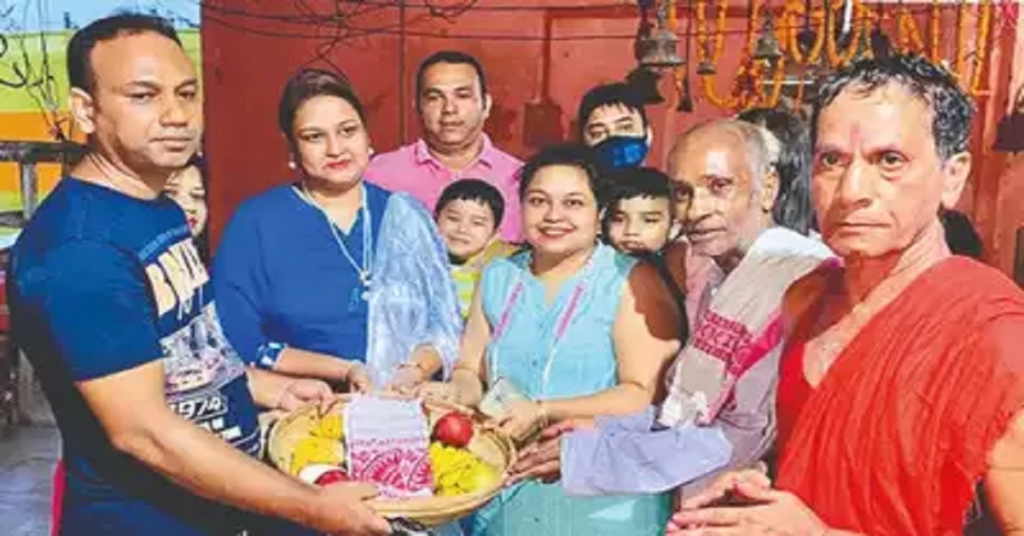In times of intense polarisation, another shining example of communal harmony comes to us from the north eastern state of Assam. Times of India reports that the centuries-old Devi Doul (Durga temple) in Assam’s Sivasagar district will, after a break of two years, begin the festivities with the distribution of prasad to an Ahom and a Muslim family on the auspicious occasion of Maha Ashthami. This will resume the age-old practice after two years of the Covid-19 pandemic and subsequent lockdown.
It is the Muslim family of Doullahs that will partake of the prasad used to beat the traditional drums (nagara) in the temple once upon a time, while the Borpatragohain family represents the Ahom community.
Basanta Gogoi, secretary of the temple development board, told the media “It gives us immense pleasure to revive the medieval-era tradition of communal harmony that the Covid-19 pandemic had put the brakes on. Though the celebrations were allowed albeit with some restrictions last year, we had to do away with prasad distribution to the two renowned families of Sivasagar altogether in 2020.”
This practice is believed to have been first adopted during the reign of the Ahom kings in the medieval period. According to the temple management, though there is no written history of this tradition, there are records with the temple management that read the “prasad of harmony” was received by the family of Konseng Borpatragohain, the first Borpatragohain- one of the three great Gohains (counsellors) in the Ahom kingdom created by Suhungmung Dihingia Raja in the year 1527.
Tosmia Doullah, daughter of Monirud Doullah, who died of Covid last year, will, along with her family, go to the Devi Doul ceremony this Maha Ashtami to revive the tradition. Tosmia is enthusiastic as she will go down in history as the one who bore witness to the revival of the tradition. “My father’s demise was unexpected and came as a shock to us. Being the senior-most member of the family, I will have to take the lead role in the ceremony to uphold the tradition,” Tosmia told TOI from Dhai Ali in Sivasagar.
Jiten Borpatragohain, a retired college teacher, who is from the 18th generation of Konseng Borpatragohain, recalled how the Doullahs joined them later, which marked the beginning of a new chapter of harmony in Sivasagar. Well-known for Hindu-Muslim unity, Sivasagar remained undisturbed even in the trouble-torn times of Babri demolition.
“During the rule of Siva Singha, Ahoms endorsed Hindu religion in large numbers. But our Borpatragohain family was a follower of the Shakta cult and devoted to Devi Durga. Our ancestors used to get prasad at home on Ashtami since the early 18 th century, mostly in the form of a goat sacrificed to the goddess on Maha Ashtami,” he said.
Image Courtesy: timesofindia.indiatimes.com
Related:
Everyday Harmony: Members of Ganpati Visarjan procession pay respect to mosque
Everyday Harmony: Kashmiri Pandits welcome back Hajis with Na’at recital
Everyday Harmony: Muslim employer performs last rites of Hindu employee
Everyday Harmony: Muslim groups organise drinking water in flood ravaged Silchar

